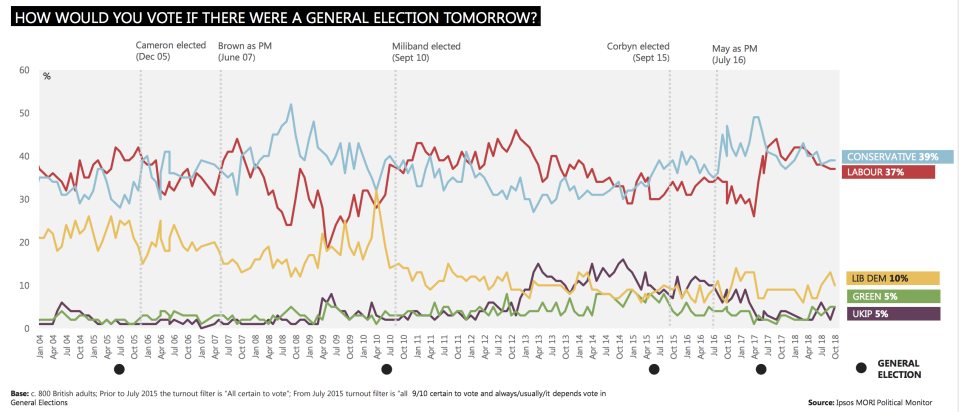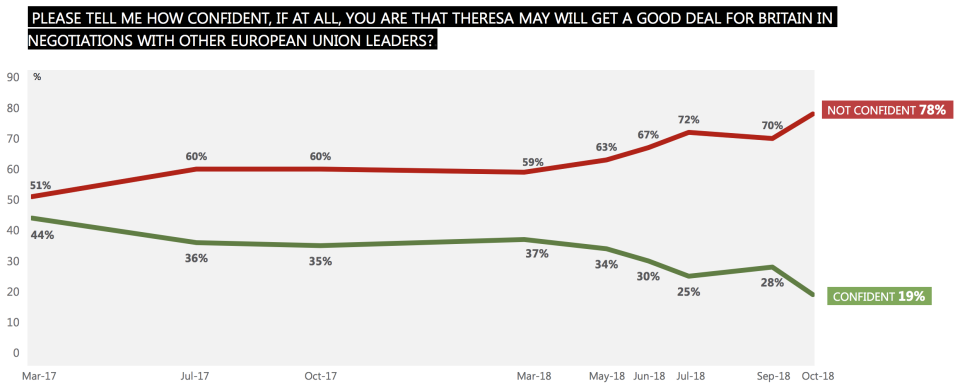Brits would still vote for the Conservatives if there was a general election tomorrow

Britons would vote for the current ruling Conservative party if it there was a general election tomorrow.
That’s according to a new poll that respected pollsters Ipsos Mori released today (29 October), just shortly ahead of the budget announcement, in which Chancellor Philip Hammond is expected to announce a round of funding for services like the NHS, even in the event of a no-deal Brexit.

The Tories’ popularity has started to tick up again, while the main opposition’s seems to be falling:

This is even in spite of criticism over prime minister Theresa May and her cabinet’s handling of Brexit. This chart shows the growing lack of confidence that May will be able to seal a good Brexit deal:

But with all polls, this should be taken with a pinch of salt. The last snap general election in 2017 had initially pipped the Tories to win by a landslide victory. However, on polling day, May’s Conservative party haemorrhaged its majority to create a hung parliament. The Tories then had to make a deal with Northern Ireland’s Democratic Unionist Party to gain enough seats to create a confidence-and-supply agreement to give May’s cabinet enough support to push items through parliament.

 Yahoo Finance
Yahoo Finance 
